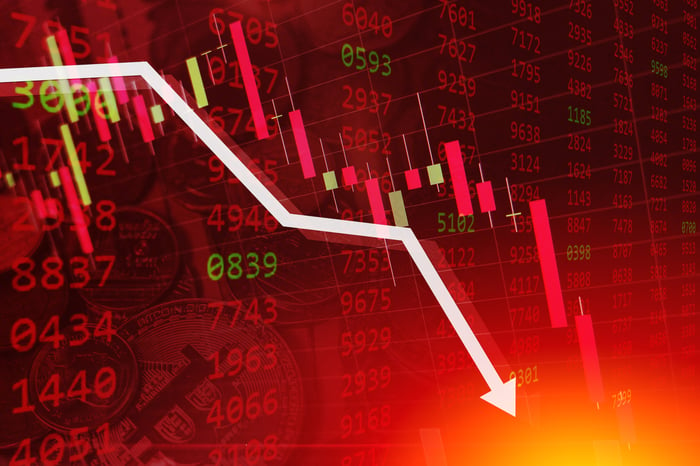What happened
Shares of electric-vehicle (EV) maker Tesla (TSLA 4.96%) tumbled for a second straight day on Wednesday, falling as much as 2.4% through 10:35 a.m. ET before recovering some of their losses later in the morning.
Elon Musk's comments have a lot to do with that.
So what
On the one hand, as The Fly reports, Goldman Sachs lowered its target on Tesla shares from $1,200 to $1,000. But $1,000 is about 33% higher than where Tesla stock trades today, and Goldman wasn't specifically targeting Tesla when it made this cut. Rather, the lowered price target was part of a broad reduction in Goldman's estimates across the U.S. auto and industrial technology space, to account for continuing supply chain snarls and expected lower production.
But the bigger Tesla story today comes straight from the CEO himself. There was a leak of an internal email from Musk to his executive staff (i.e., office workers, not factory employees) advising them that the company is ending work-from-home permission and requiring its employees to either return to the office or "pretend to work somewhere else."
They should pretend to work somewhere else
-- Elon Musk (@elonmusk) June 1, 2022

Image source: Getty Images.
Now what
The result was predictable, but there are actually two ways of looking at this new Tesla policy. From one perspective (the one that investors seem to be taking today), the company is risking a brain drain by telling some of its most skilled staff to either resume commuting to work or else hit the road. In a seller's market like the present labor market in the U.S., this ultimatum is probably not going to be popular with work-from-home staff who have gotten used to not having to commute to the office over the past two pandemic years.
If remote work is no longer acceptable to Musk, then working for Tesla might no longer be acceptable to many key Tesla employees. They could instead defect to Rivian, Ford, Apple, or any of a number of other Tesla competitors, to the detriment of its business.
But here's the contrary theory: It's not fair that within a single company, one class of employees (factory workers) is required to come into work while another (the executive staff) isn't.
In the short term, Musk's ultimatum could cause unrest -- maybe even revolt -- among his white collar staff. But by eliminating de facto favoritism, Tesla may actually end up increasing esprit de corps and strengthening the entire company as a result. One can hope, at least.





